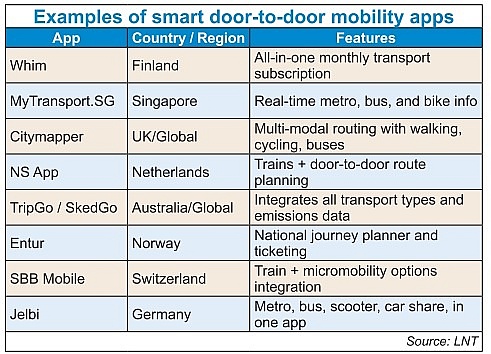INTERNATIONAL INVESTMENT
AND PORTAL
This bold move signals Vietnam’s determination to transform its urban transportation landscape in favour of greener, more sustainable mobility. While the proposal has stirred public debate over civil rights and economic feasibility, it also presents a valuable opportunity to redefine urban living in Vietnamese cities.
 Le Net, Partner, LNT & Partners
Le Net, Partner, LNT & Partners
With over 5.6 million motorbikes in Hanoi alone, air pollution, traffic congestion, and safety concerns are pressing issues. Traditional motorcycles contribute heavily to CO2 emissions, noise, and particulate pollution. Vietnam is not alone, major cities like Guangzhou in China, Yangon in Myanmar, and even entire countries like the Netherlands have implemented restrictions on internal combustion engines in city centres.
In many countries like China, Myanmar, and Cambodia, big cities have successfully banned motorbikes in their central areas. They do not start by forcing people to give up their personal vehicles, but by creating conditions that are attractive enough for people to make the switch.
We can do the same, or do it better. For example, the state can completely implement a programme to buy old petrol motorbikes at market prices, supporting people to switch to electric bicycles, electric motorbikes or bicycles. This is a way to show respect for property rights, while encouraging sustainable transformation.
More importantly, it is about changing travel behaviour. People choose motorbikes not because they like the exhaust fumes or the noise, but because it is the most convenient option at the moment. If the public transport system can demonstrate that taking the metro or a bus is cheaper, faster, cleaner, and less risky, then motorbike users will adjust themselves.
To do that, we need to apply technology: a platform or application that can connect the route “door to door”, showing the real cost and time between riding a motorbike and taking public transport. If people find that they do not save time, money or comfort when riding a motorbike compared to taking the metro, they will not need anyone to ask them to, they will switch themselves.

Globally, cities are adopting mobility-as-a-service platforms that integrate public transit, bike sharing, ride-hailing, and walking routes into a single seamless journey planner.
Next is the privately operated shuttle bus system, which connects metro stations and bus stops with residential areas within a radius of 2–3km. If from any point in the city people only need to get to the station in a maximum of 10 minutes, by a clean, punctual minibus, then distance to public transport will no longer be a problem.
And finally, education. We need to reshape the image of bicycles in urban areas. In Japan or Germany, cycling to the bus stop and then transferring to work is completely normal. The same goes for children. Students in Hanoi and Ho Chi Minh City can absolutely become pioneers if schools, parents and authorities commit to building infrastructure and spreading the image of “going to school green”.
We must admit that no modern city can sustain a rampant motorbike culture without paying the price of dirty air, noise and chaos.
To make the plan feasible, Vietnam should start from now developing a national app integrating metro, buses, ride-hailing, and bike sharing; expanding public bike-sharing systems around stations.
The country should also consider incentivising the trade-in of old gas motorbikes for electric bikes or public transport vouchers; promoting private shuttle services from residential areas to major transit hubs; and running public education campaigns on multi-modal transport culture.
Banning fossil-fuel motorcycles in central Hanoi is not just a restriction, it is a signal. A sign that Vietnam is ready to join the ranks of progressive cities embracing clean air, efficient public transport, and healthier urban living. With proper planning and inclusive execution, green mobility can be not just an environmental policy, but a cultural evolution.



















